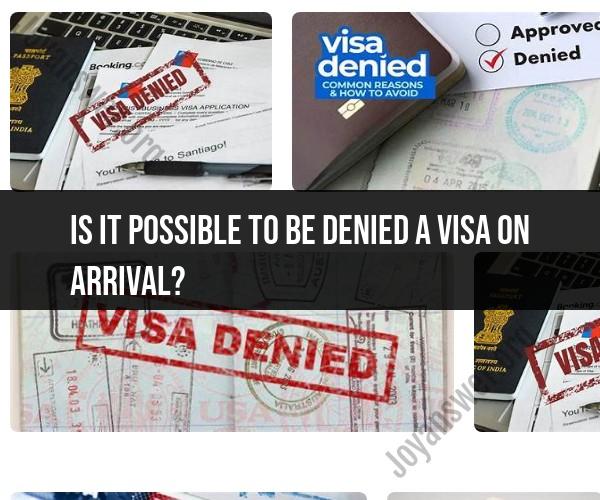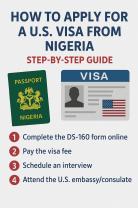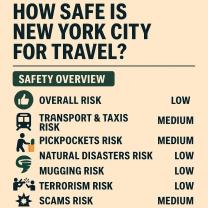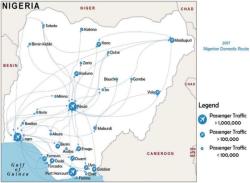Is it possible to be denied a visa on arrival?
Yes, it is possible to be denied a visa on arrival (VoA) in many countries, including Nigeria and others that offer VoA programs. The decision to grant or deny a visa on arrival is typically made by immigration authorities at the point of entry (e.g., airport, border checkpoint). Several factors can lead to the denial of a visa on arrival:
Ineligibility: Travelers who do not meet the eligibility criteria for a visa on arrival may be denied. Each country has specific eligibility requirements based on the purpose of the visit, nationality, and other factors.
Incomplete Documentation: Failure to provide all required documents or the correct documentation can result in a visa denial. This may include not having a valid passport, a Visa Approval Letter (if required), or other supporting documents.
Criminal Record: Individuals with a criminal record, particularly for serious offenses, may be denied a visa on arrival. Some countries conduct background checks upon arrival.
Overstaying Previous Visits: If a traveler has a history of overstaying previous visas or violating immigration laws in the host country, this can lead to a visa denial.
Health Issues: In some cases, travelers with contagious diseases or health conditions that pose a public health risk may be denied entry.
Security Concerns: National security concerns or being on a watchlist may result in visa denial. Individuals associated with terrorist organizations or involved in criminal activities may be denied entry.
Lack of Financial Means: Travelers may be required to demonstrate that they have sufficient funds to cover their stay and expenses in the host country. Failure to do so could lead to a visa denial.
Misrepresentation: Providing false information on visa applications or during immigration interviews can lead to visa denials. It is essential to be honest and accurate in all dealings with immigration authorities.
Visa Overstay: If travelers have previously overstayed a visa or violated the terms of a previous visa, they may be denied a visa on arrival or any future visas.
Travel Bans and Sanctions: In cases where a country has imposed travel bans or sanctions on specific individuals or nationalities, those affected may be denied entry.
Security Threats: If a traveler is deemed a security threat or poses a risk to the host country's security, they may be denied entry.
Failure to Comply with Visa Conditions: Travelers must adhere to the conditions of their visa, including departure by the specified date. Failure to comply with visa conditions can result in visa denial or deportation.
It's crucial to thoroughly research and understand the visa requirements and conditions for your specific destination before traveling. To avoid potential visa denials, ensure that you meet all eligibility criteria, have the necessary documentation, and comply with the rules and regulations of the host country. If you have concerns or questions about your eligibility, it may be wise to consult with the embassy or consulate of the host country or seek legal advice.
Visa Denials on Arrival: Is It Possible and Why?
Yes, it is possible to be denied a visa on arrival. An immigration officer at the port of entry may deny a visa on arrival for a variety of reasons, including:
- Incomplete or inaccurate documentation: If you do not have all of the required documentation, or if your documentation is incomplete or inaccurate, your visa on arrival application may be denied.
- Ineligibility: You may be ineligible for a visa on arrival if you are not a citizen of a country that is eligible for the visa on arrival program, or if you do not meet the other eligibility criteria.
- Security concerns: If the immigration officer has any security concerns, such as if you have a criminal record or if you are suspected of being a terrorist, your visa on arrival application may be denied.
Understanding Visa on Arrival Denials: Causes and Considerations
Here are some additional causes and considerations related to visa on arrival denials:
- Discretion of the immigration officer: The decision of whether or not to grant a visa on arrival is ultimately up to the discretion of the immigration officer. This means that even if you meet all of the eligibility criteria, your visa on arrival application may still be denied.
- Communication issues: If you are unable to communicate effectively with the immigration officer, this may also lead to a visa on arrival denial.
- Appearance: First impressions matter, so it is important to dress neatly and professionally when applying for a visa on arrival.
Nigeria Travel Requirements: The Visa-on-Arrival Question Answered
Nigeria is one of the countries that offers a visa on arrival program to citizens of certain countries. However, it is important to note that even if you are eligible for a visa on arrival, you may still be denied a visa at the port of entry.
To avoid being denied a visa on arrival in Nigeria, it is important to make sure that you have all of the required documentation, that you meet all of the eligibility criteria, and that you are well-prepared for your interview with the immigration officer.
Here are some tips for increasing your chances of being granted a visa on arrival in Nigeria:
- Do your research: Before you travel to Nigeria, be sure to research the visa on arrival program and the eligibility criteria. You should also learn about the interview process and what to expect.
- Gather all of the required documentation: Make sure that you have all of the required documentation, such as a valid passport, return ticket, proof of sufficient funds, and completed visa on arrival application form.
- Dress professionally: Dress neatly and professionally when applying for a visa on arrival. This will make a good first impression on the immigration officer.
- Be polite and respectful: Be polite and respectful to the immigration officer during your interview.
If you are denied a visa on arrival in Nigeria, you will be asked to leave the country. You may reapply for a visa at a later date, but there is no guarantee that you will be granted a visa.












